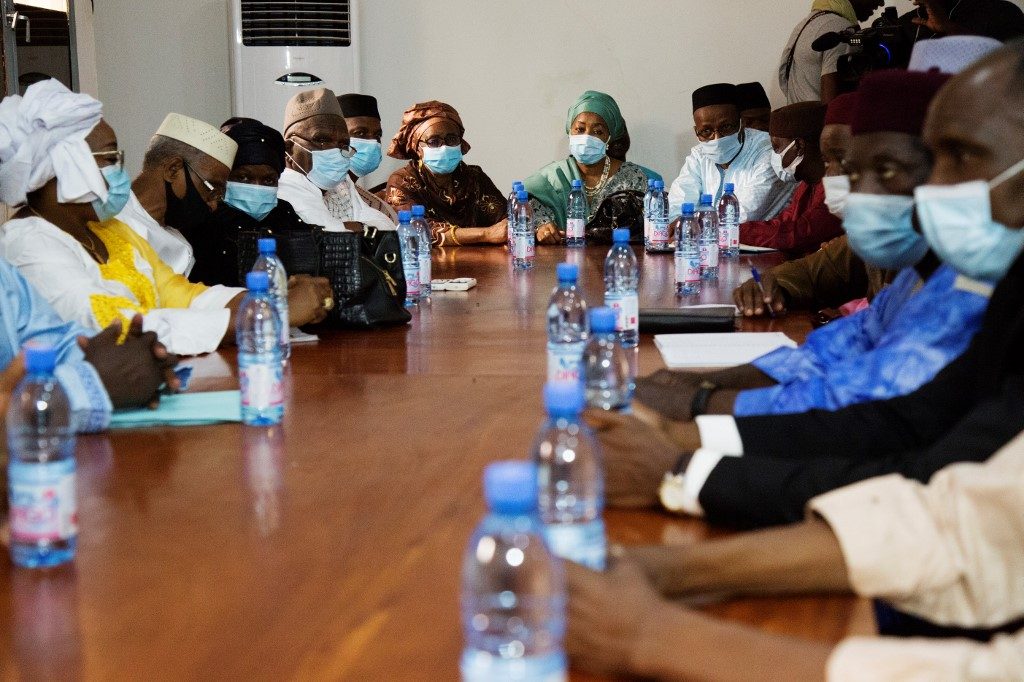SUMMARY
This is AI generated summarization, which may have errors. For context, always refer to the full article.

A Malian protest coalition that had campaigned against former president Ibrahim Boubacar Keita said Wednesday, August 26, it was willing to work with the junta which ousted him in a process to restore civilian rule.
“We are willing to work with this process, we came here to exchange views and to reaffirm that we have the same positions” as the military, said Issa Kaou Djim, a leading figure in the June 5 Movement, after its first formal talks with the junta.
“We have been reassured (by the fact) that these troops are soldiers, great intellectuals. Mali, across the entire spectrum, is in a drive to bring everyone together,” he said.
Keita, 75, was forced out on August 18 by young army officers who led a mutiny at a military base at Kati, 15 kilometers (9 miles) from Bamako.
They headed into the capital where they detained the president, Prime Minister Boubou Cisse and other leaders.
The putsch – the second in 8 years – has once more placed the spotlight on one of Africa’s most unstable countries, which is battling a jihadist revolt and economic slump.
The coup leaders were cheered by a large rally on Friday, August 21, organized by the June 5 Movement, although they have been condemned by the country’s neighbors, the United States, African Union, European Union and the UN.
‘Substantive discussions’
Named after the day and month that it was launched, the June 5 Movement comprises a diverse association of grassroots groups, political parties and religious figures cemented by the demand for Keita’s resignation.
Modibe Kone, another leader of the group who took part in the roughly hour-long talks in Kati, said, “We told the junta that it would be useful to have substantive discussions afterwards. They agree, and they said they will consult the people.”
The next meeting is scheduled to take place on Saturday, August 29, attended by the junta’s leader, Colonel Assimi Goita, who did not take part on Wednesday, according to people at the talks.
Keita was elected in 2013 as a unifying figure in a fractured country and was returned in 2018 for a second five-year term.
But his popularity nosedived as he failed to brake a bloody jihadist campaign that has claimed thousands of lives and driven hundreds of thousands from their homes, and to reverse the country’s downward economic spiral.
Within hours of the coup, the junta, which calls itself the National Committee for the Salvation of the People, promised to enact a political transition and stage elections within a “reasonable time.”
But it has given no details about the timetable, and the issue is a major source of discord with the regional bloc ECOWAS. – Rappler.com
Add a comment
How does this make you feel?
There are no comments yet. Add your comment to start the conversation.